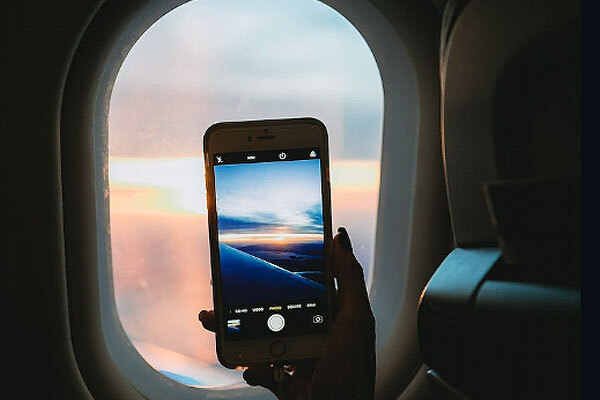Companies in the tourism industry see how customers change their habits, behaviors and preferences. Traditional ways of connecting with customers are no longer as effective as they used to be. This is not only due to the effects of Covid-19, but also to the impact of technology on tourism.
Travelers are using digital tools that adapt to this technological revolution and help them connect with tourism companies through mobile systems with the developing technology, where this new information network is wide. We live in a highly competitive market with a very demanding public and it is only through business innovation that you can stand out from the competition.

Customer Service Industry
Travelers are extremely knowledgeable .They search different tools for general use and to determinate which vacation is most suitable for them. Companies in the tourism sector should implement efficient customer systems on apps and that apps can respond to all content, offer personalized and provide conveniences by keeping up with technology.
To do this, it can be used for use in tools like Google My Business and a 24/7 open chatbot can be installed to answer user queries.
Mobile APPS
If you have a mobile app, you should make the most of it. According to research done; 60% of reservations from companies with mobile applications are now made online and this rate is increasing.
Today, users use mobile phones and applications at all stages of travel, as they make it easier to organize travel, interact with the destination and share their experiences.
It is important for companies to offer a product that fulfills a need, and to do so with good infrastructure and interface to make the user experience the best possible. Ease of use is the most important method when it comes to acquiring a user.
Social Networks
One of the most powerful and user-friendly tourism technologies is social media. One of the ways to take advantage of social networks is to create interesting content, as well as share posts you've been tagged in. A user's recommendation on their social network can act as a "digital References" and encourage many of their followers to go to that organization.
Likewise, You can to the opportunity to segment your target audience. Also you can communicate with your target audience in a more personal and effective way. Creating a dialogue with your customer where they can express their views and expectations is also will be usefull. If you win one via referral, you will win a thousand!
Tourism Software’s
This technology is very beneficial to the Tourism industry as it allows central, automated and easy management of all processes of a tourism business. From reservations, inventories, human resource management to streamlining processes and reducing costs, it has many benefits.
Likewise, these systems support you in your main goal of improving your customers' experience with the brand, from their reservations to their stay, to the management of reviews that they can usually leave once.
IA and Big DATA
Artificial intelligence is now in a position to be a helper, developer and sometimes even a manager in every sector, including the tourism sector. Now we even have hotels served by robots. Of course, one of the foundations that helps this development is that we can store our data on a larger scale. While 20 years ago we were talking about kilobytes and megabytes on small floppy disks, now we are talking about gigabytes and even terabytes. Thanks to the Internet, we can store these terabytes of data, and much more. With this large amount of stored data, it can be analyzed and personalized strategies can be created to improve the passenger's experience. Similarly, thanks to Artificial Intelligence, we can automate many tasks without the need for any human interaction, making processes faster, more precise and reducing costs.
These technologies enable businesses to work with more reliable information, better feedback management, help forecast demand, and create strategies that increase loyalty and retention.
Become a smart tourist destination
Smart destinations or DTI are based on technological infrastructures that support the sustainable development of the touristic destination and facilitate the interaction of tourists with the environment to improve their experience.
This new tourism concept allows visitors to be offered a more personalized experience tailored to their needs and preferences, with benefits such as free Wi-Fi, video guides or self-guides.
Barriers In Tourism
Some of the challenges in implementing these solutions are finding qualified personnel who know how to use these tools. Today, a certain distance can be seen between the trainings received by professionals in the tourism sector and the needs of the market. Similarly, there are companies that are sometimes unable to train their existing teams due to lack of budget or time.
Another big hurdle is fear of change, resistance to changing habits for fear of no return on investment, and sometimes the saying “badly known is better than well-known” is a defense mechanism for us and keeps us from doing so. Innovating and being more competitive while staying in a “safe” area can make us feel better at first. But do not forget that companies that remain behind technological developments are doomed to decline after a while.
What awaits tourism in the future?
The tourism industry is increasingly seeing the benefits that new technologies bring to business, and investments in these digital tools are increasing.
If you want to be competitive in a 100% digital tourist market, you need to make pen and paper a thing of the past and implement tools that allow you to communicate more effectively with them, streamline processes and improve your experience.
Similarly, it is the responsibility of not only businesses, but also universities and training centers, who must teach courses on digital tools for future tourism professionals to guide this transition.














